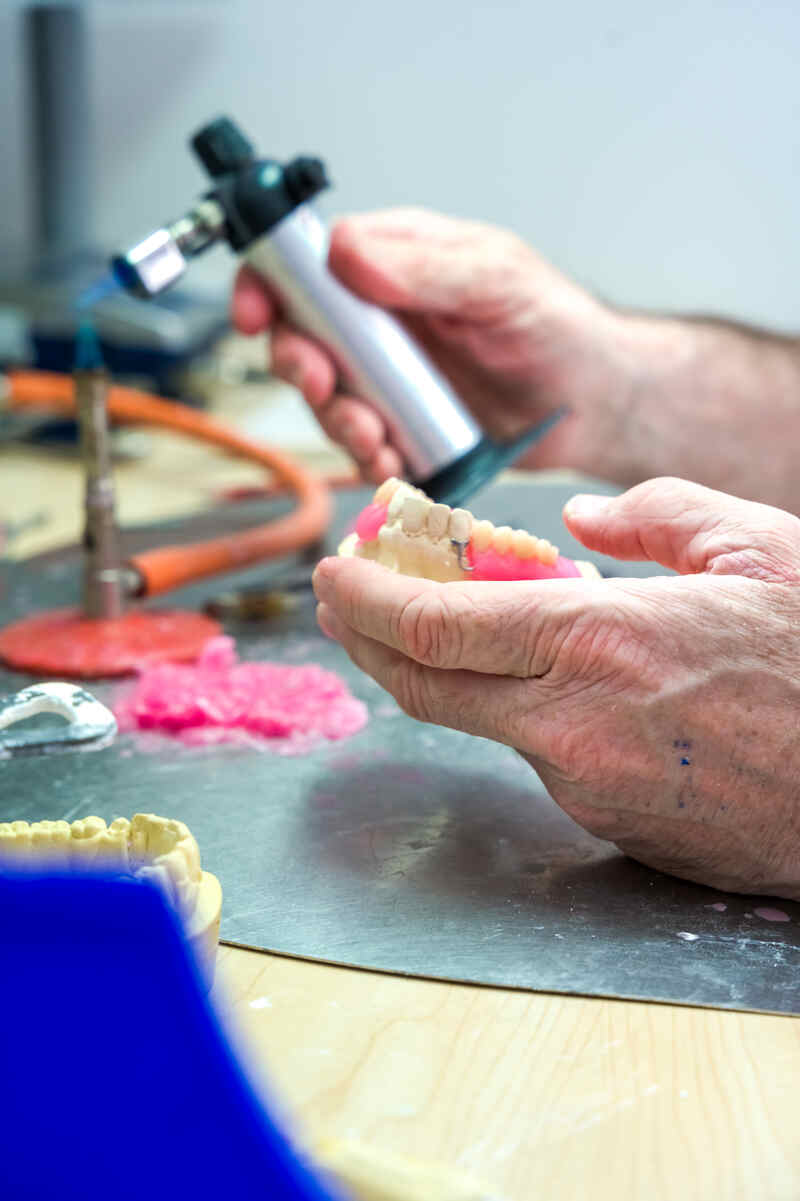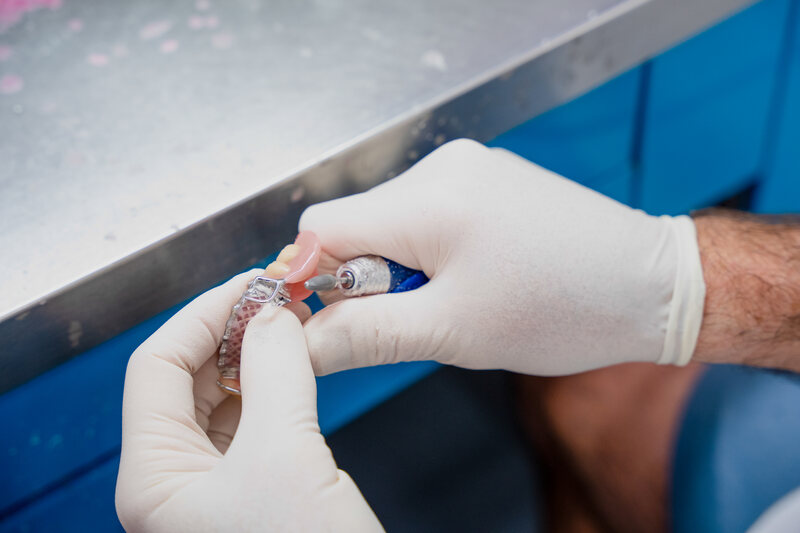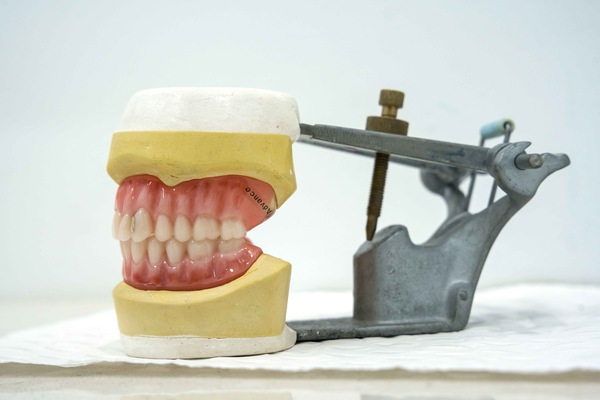Dental prosthetics have come a long way in restoring smiles and improving the quality of life. Especially for individuals who have lost their natural teeth. These remarkable prosthetic devices can provide a second chance at enjoying a confident smile. As well as, the ability to eat and speak comfortably. For those considering dental prosthetics, one critical decision is choosing between partial dentures and full dentures. In this guide, we will explore the differences, benefits, and factors to consider when deciding which type of dental prosthetic is right for you.
Understanding Dental Prosthetics:
Before delving into the differences between partial and full dentures, it’s important to understand what dental prosthetics are and how they work. Dental prosthetics, also known as dentures, are custom-made replacements for missing teeth and the surrounding gum tissues. They are designed to fit correctly in your mouth, mimicking the appearance and function of natural teeth. Dentures can be an ideal solution for individuals who have lost some or all of their teeth due to various reasons, such as dental decay, gum disease, accidents, or ageing.
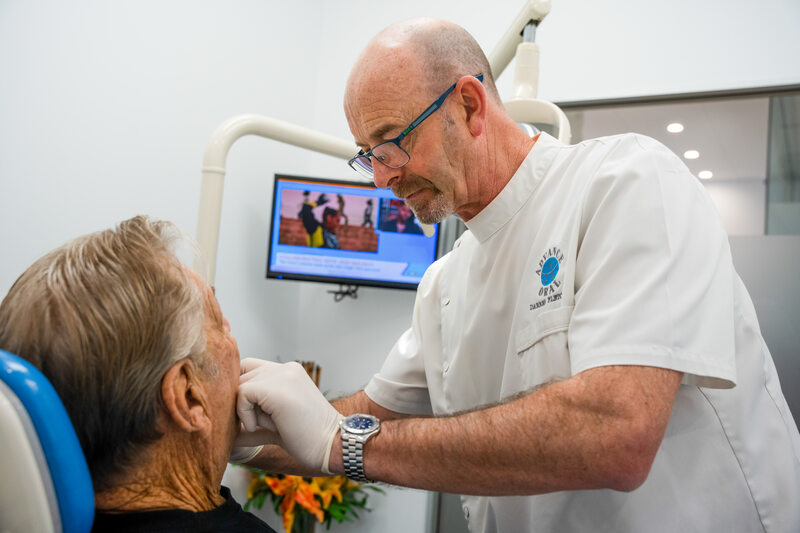
Partial Dentures:
Partial dentures, as the name suggests, are designed to replace only a portion of your teeth. They consist of a framework made of metal or acrylic, which supports the replacement teeth. Partial dentures are suitable when some natural teeth are still present and in good condition. They fill in the gaps created by missing teeth, preventing nearby teeth from shifting position.
Benefits of Partial Dentures:
- Preserve Natural Teeth: One of the significant advantages of partial dentures is that they help preserve your remaining natural teeth. By preventing adjacent teeth from drifting, they maintain the integrity of your dental arch.
- Improved Chewing and Speaking: Partial dentures restore lost chewing and speaking functions, making it easier to enjoy a variety of foods and communicate clearly.
- Improved Aesthetics: These prosthetics are designed to blend with your natural teeth, providing an aesthetically pleasing appearance and boosting your confidence.
- Customisable: Partial dentures are customisable to your specific needs, guaranteeing a precise fit and comfort.
Full Dentures:
Full dentures, on the other hand, are intended to replace an entire arch of teeth, either the upper or lower jaw. They consist of a complete set of artificial teeth attached to an acrylic base that mimics the appearance of gum tissue. Full dentures are an excellent choice for individuals who have lost all of their natural teeth in a particular arch.
Benefits of Full Dentures:
- Tooth Replacement: Full dentures provide a solution for individuals who have lost all their teeth in a particular arch. They restore both aesthetics and functionality.
- Improved Facial Structure: With full dentures, the underlying bone structure is supported, helping maintain facial volume and preventing a sunken appearance that can result from tooth loss.
- Boosted Self-Esteem: Full dentures can significantly improve a person’s self-esteem and confidence by restoring a complete smile.
- Natural-Looking Appearance: Modern full dentures are built with great attention to detail, resulting in a natural-looking smile.
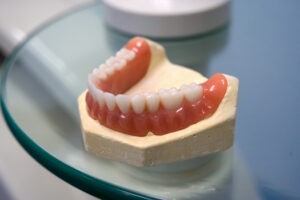
Choosing Between Partial and Full Dentures:
The decision to choose between partial and full dentures depends on several factors, including the number of missing teeth, the condition of your remaining teeth, and your overall oral health. Here are some key considerations to help you make the right choice:
- Extent of Tooth Loss: If you have lost only a few teeth in a particular arch, partial dentures may be sufficient. However, if you have lost most or all of your teeth in that arch, full dentures are likely the better option.
- Oral Health: The condition of your remaining teeth and the health of your gums play a significant role in the decision. If your natural teeth are in poor condition and require extensive dental work, full dentures may be the more practical choice.
- Budget: Cost is a major factor. Full dentures tend to be more expensive than partial dentures due to the nature of their replacement. Consider your budget and insurance coverage when making a decision.
- Long-Term Goals: Think about your long-term dental health and your goals for the future. If you intend to maintain some natural teeth for as long as possible, partial dentures might be the right choice.
- Consultation: Ultimately, it’s advisable to consult with a dentist or prosthodontist who specialises in dental prosthetics. They can evaluate your specific oral health situation, discuss your preferences, and recommend the most suitable option for your needs.
The Path to Your Confident Smile
With dental prosthetics, choosing between partial and full dentures is a big decision. it can significantly impact your oral health and overall well-being. Both types of dentures have their unique advantages and are suitable for different situations. To make the right choice, consider tooth loss extent, remaining teeth condition, budget, and long-term dental goals. Consult a dental professional for personalised guidance. They’ll provide valuable insights and guidance in selecting the best option for your individual needs. With the right dental prosthetic, you can regain a confident smile and enjoy improved oral health.


